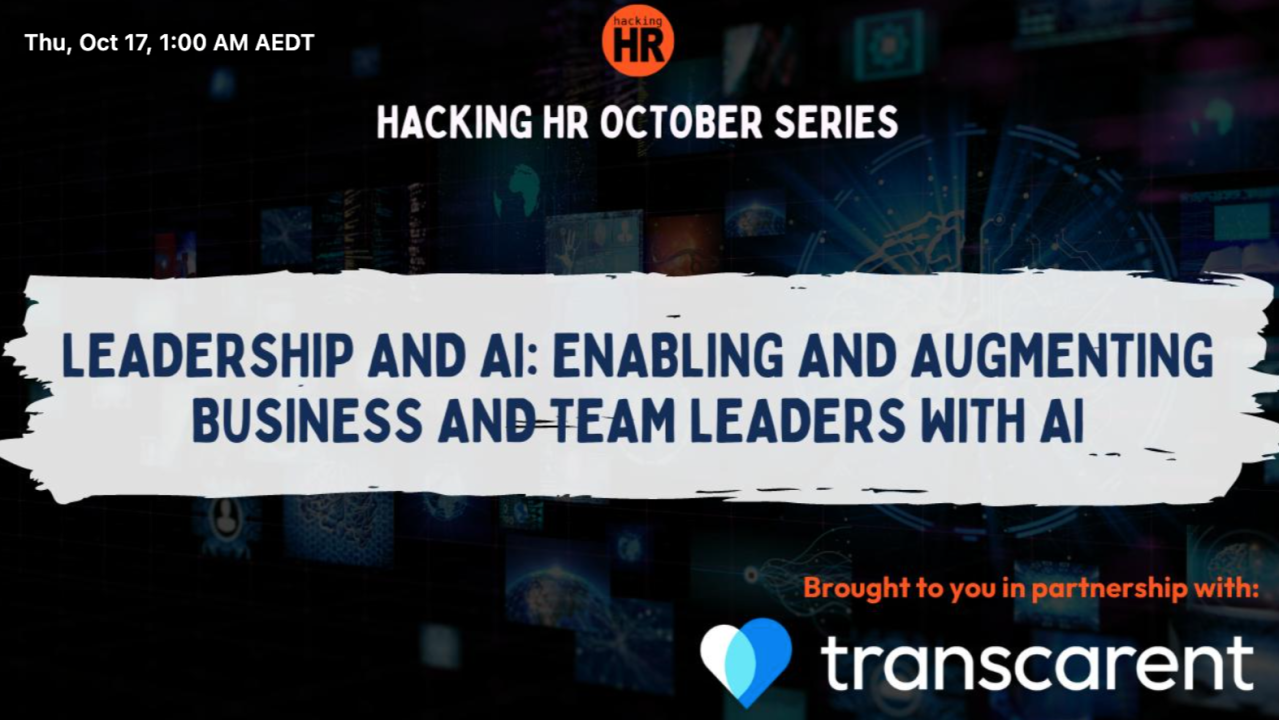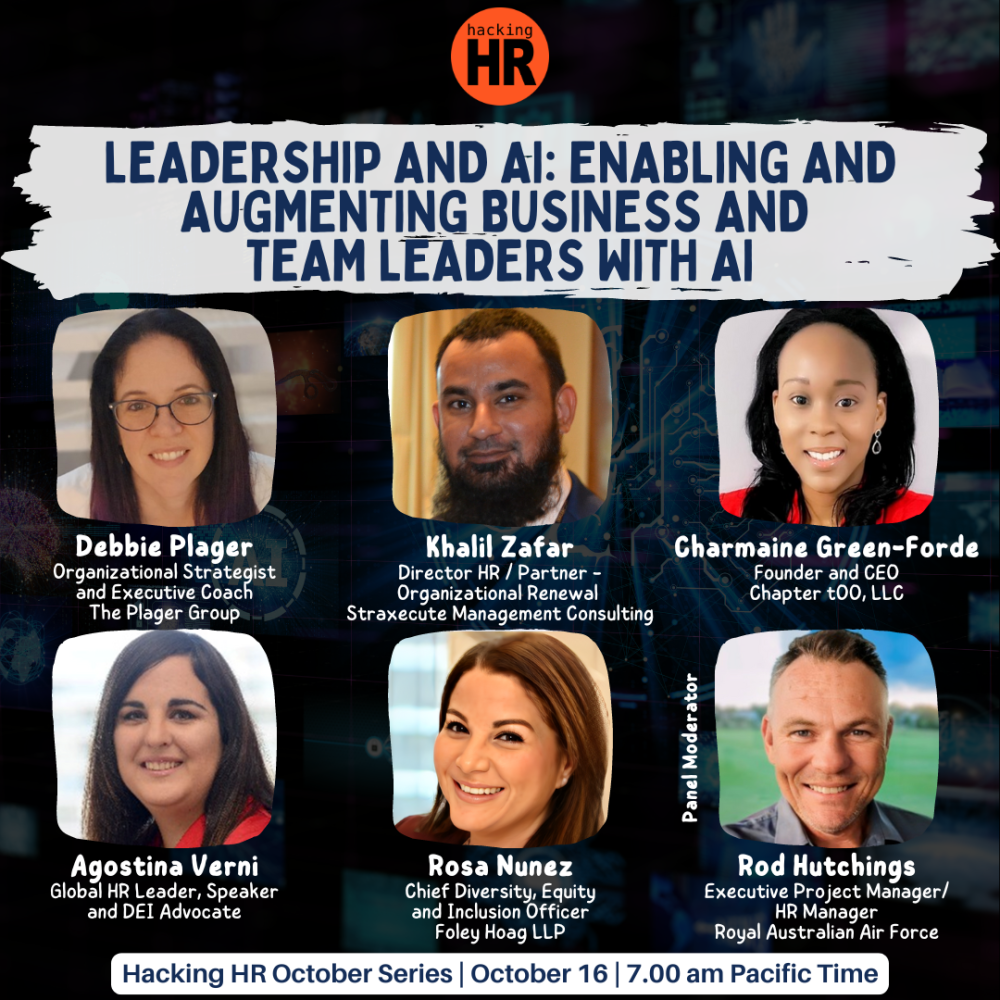
Hacking HR
At its core, AI enhances leadership by providing data-driven insights that lead to better decision-making. Traditional decision-making often relies on intuition, experience, and limited data. With AI, leaders can access real-time analytics, uncover patterns in large datasets, and make predictions with a high degree of accuracy.
For HR professionals, this means:
- More accurate talent forecasting: AI can help predict talent needs based on turnover rates, market trends, and employee engagement levels.
- Data-driven performance evaluations: AI analyzes employee performance data objectively, helping leaders make informed decisions about promotions, training needs, and team restructuring.
Example: Consider Unilever, a company that uses AI to screen job candidates by analyzing their facial expressions, word choices, and tone in video interviews. This AI-driven process has improved the speed and quality of hiring decisions, allowing HR to focus on strategic tasks like candidate engagement and onboarding.
Takeaway: Encourage your leadership team to embrace AI tools for decision-making, as they provide a strategic advantage in competitive markets.
The Key Leadership Skills Needed to Navigate the AI-Driven Future
The rise of AI doesn’t eliminate the need for human leadership—it enhances it. However, to thrive in an AI-driven world, leaders must develop new skills:
- AI Literacy: Leaders don’t need to become data scientists, but they do need to understand AI basics—what it is, how it works, and its potential impact on the business. AI literacy allows leaders to ask the right questions, challenge assumptions, and make informed decisions about AI tools.
- Adaptability: AI-driven change happens fast, and leaders must be open to continuous learning and adaptability. Flexibility in decision-making and strategy will be crucial as AI evolves and introduces new ways of working.
- Collaboration: AI works best when combined with human insight. Leaders must foster a collaborative environment where AI complements the strengths of their teams, rather than replacing them.
Example: Satya Nadella, CEO of Microsoft, has led his company through a digital transformation by embracing AI and fostering a collaborative culture. Under his leadership, Microsoft has implemented AI-driven cloud solutions that enhance productivity while empowering employees to focus on creative, strategic tasks.
Takeaway: HR professionals should offer AI literacy programs and encourage leaders to build adaptable and collaborative cultures that can harness the full potential of AI.
Ensuring AI is Used Ethically and Effectively in Leadership
As AI becomes more embedded in leadership, ethical considerations are crucial. AI can inadvertently introduce biases if not managed properly, and data privacy concerns must be addressed to maintain trust.
Key actions for leaders to ensure ethical AI use include:
- Setting clear ethical guidelines: Leaders should establish a framework for AI use that prioritizes fairness, transparency, and accountability. These guidelines will help ensure that AI augments human decisions in a responsible way.
- Monitoring for bias: AI systems are only as good as the data they are trained on. Leaders should work with their teams to regularly audit AI tools for potential biases that could impact decision-making.
- Protecting data privacy: As AI relies on vast amounts of data, safeguarding employee and customer information must be a top priority.
Example: IBM developed a framework for ethical AI use, including principles for transparency, explainability, and fairness. This has allowed them to innovate while maintaining trust with both employees and customers.
Takeaway: HR professionals should work closely with leaders to develop ethical AI guidelines that align with organizational values and promote fairness and accountability in AI-driven decisions.
Strategies to Foster AI Literacy and Adoption Among Leadership
AI adoption is only effective if leaders understand how to use it. As an HR professional, you play a key role in helping leaders become AI-literate and fostering a culture of AI innovation.
Steps to encourage AI adoption:
- Training and Education: Provide leaders with access to AI training programs that offer a foundational understanding of AI concepts. These programs should cover AI’s benefits, limitations, and practical applications in leadership.
- Pilot Projects: Start small by implementing AI in low-risk areas. Pilot projects can demonstrate AI’s potential and build leaders’ confidence in using AI tools. For example, an AI-driven tool that automates employee scheduling can save time and show tangible benefits.
- Open Communication: Promote a culture of transparency and open dialogue about AI. Leaders should feel comfortable discussing AI’s role in the organization, including any concerns or challenges they face.
Example: PwC’s AI Academy trains leaders and employees on AI basics, helping them develop the skills needed to integrate AI into their work. This not only improves AI adoption but also ensures that the entire organization understands AI’s strategic value.
Takeaway: HR professionals should lead the charge in offering AI training and fostering a culture that embraces AI innovation. Starting with small, pilot projects can demonstrate AI’s potential and build momentum for broader adoption.
Conclusion: Preparing for the AI-Driven Leadership Era
The role of leadership is evolving, and AI is at the center of this transformation. For HR professionals, this presents both a challenge and an opportunity: the chance to guide leaders through this transition and ensure that AI is used to enhance, not replace, human capabilities.
By promoting AI literacy, fostering collaboration between AI and human teams, and ensuring ethical AI use, HR professionals can empower leaders to make smarter decisions and drive organizational success in the AI era.
What more insights to help prepare for the AI-Driven Leadership Era
Join us for the upcoming panel discussion, “Leadership and AI: Enabling and Augmenting Business and Team Leaders with AI”, on 16 October to hear from industry leaders about the future of AI in leadership and how HR professionals can drive this transformation.

Panel Members
Meet the Experts: “Leadership and AI: Enabling and Augmenting Business and Team Leaders with AI” Panel
This dynamic panel brings together a group of experienced leaders who are deeply engaged with the intersection of leadership and AI. Each of the panelists brings a wealth of knowledge from their unique backgrounds, allowing you to gain a comprehensive understanding of how AI can augment leadership, improve decision-making, and drive organizational success.
Debbie Plager
Organizational Strategist and Executive Coach, The Plager Group
Debbie Plager has an extensive background in organizational strategy and leadership coaching. With years of experience helping executives navigate change, she understands how AI can reshape leadership roles and enhance team performance. Her coaching expertise makes her a critical voice on how AI can support leaders in developing more agile, responsive, and effective teams.
Khalil Zafar
Director HR / Partner – Organizational Renewal, Straxecute Management Consulting
Khalil Zafar specializes in organizational renewal and HR transformation, making him an expert in guiding businesses through large-scale changes—including those driven by AI. With his experience at Straxecute Management Consulting, Khalil helps companies reimagine their structures and processes for greater efficiency and adaptability, often with AI as a key tool.
Charmaine Green-Forde
Founder and CEO, Chapter tOO, LLC
As the Founder and CEO of Chapter tOO, LLC, Charmaine Green-Forde is at the forefront of business leadership and organizational development. She brings her extensive experience in helping organizations grow through effective leadership strategies, making her an authoritative voice on how AI can be integrated to enhance leadership capabilities.
Agostina Verni
Global HR Leader, Speaker, and DEI Advocate
Agostina Verni is a seasoned Global HR Leader with a strong focus on Diversity, Equity, and Inclusion (DEI). Her work has helped organizations implement inclusive practices that create a balanced and equitable workplace, and she brings a global perspective to the conversation on leadership and AI.
Rosa J. Nuñez
Chief Diversity, Equity, and Inclusion Officer, Foley Hoag LLP
As the Chief DEI Officer at Foley Hoag LLP, Rosa Nunez has deep expertise in embedding diversity, equity, and inclusion into organizational strategy. She’s been instrumental in leading her firm’s efforts to build inclusive and fair workplaces, making her a key voice on how AI can support DEI initiatives in leadership and business practices.
Why This Panel Is Valuable to You
This panel will offer practical, real-world insights into how leaders in various industries are using AI to drive success. Whether you’re an HR professional, a business leader, or someone looking to adopt AI tools in your role, you will gain:
- Expert advice on integrating AI into decision-making and organizational strategy.
- Actionable tips on fostering AI literacy and ethical AI practices in leadership.
- Deep insights into the evolving role of leaders in an AI-driven world.
Join the Panel!
Don’t miss this opportunity to learn from leaders who are successfully navigating the AI transformation. You’ll come away with a clearer understanding of how to harness AI to enhance leadership, optimize team performance, and ensure ethical use of technology in your organization. Register here for the 16 October event.
By attending, you’ll be better equipped to lead in the AI era, ensuring your organization is prepared for the future of work!